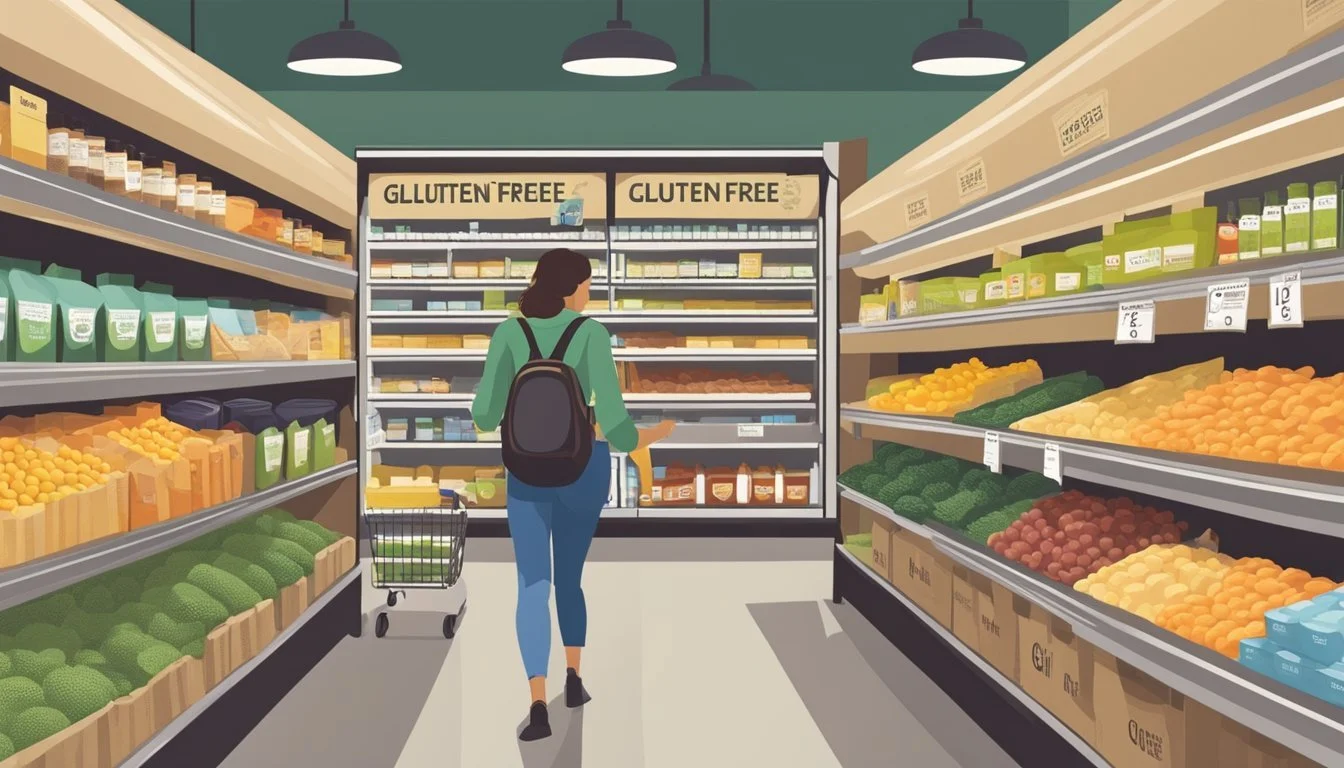Should Everyone Follow a Gluten-Free Diet?
Evaluating the Pros and Cons
A gluten-free diet, which eliminates foods containing the protein gluten, is critical for individuals with celiac disease, as gluten can trigger severe health consequences in these patients. This dietary restriction is also beneficial for those with gluten sensitivity, a condition that exhibits symptoms similar to celiac disease but without the associated intestinal damage. However, adopting such a diet without a medical need has become increasingly popular, leading to a broader discussion about its potential health benefits and drawbacks for the general population.
For most people, gluten, which is found in wheat, rye, barley, and triticale, is not harmful. In fact, foods containing gluten are an important source of dietary fiber, vitamins, and minerals. Therefore, the necessity for a gluten-free diet is largely dependent on individual health conditions rather than a one-size-fits-all dietary solution. The decision to follow a gluten-free diet should be made based on medical advice and nutritional awareness, considering potential deficiencies that may arise from eliminating whole categories of foods.
As the market expands with gluten-free alternatives, it's important to scrutinize these options as well. Some gluten-free products are highly processed and may contain less fiber and more added sugars and fats than their gluten-containing counterparts. This underscores the importance of informed dietary choices and highlights why whole, minimally processed gluten-free foods such as fruits, vegetables, and certain whole grains should be prioritized for a balanced diet.
Understanding Gluten and Gluten-Related Disorders
Gluten-related disorders affect a significant portion of the population, necessitating diverse dietary considerations. This section offers a detailed look at gluten, its impact on those with gluten-related disorders, and the nuances of each condition.
What is Gluten?
Gluten is a group of proteins found primarily in wheat, rye, and barley. It gives dough its elastic texture and is a common ingredient in various foods. Gluten is not harmful for most people; however, for individuals with certain health conditions, consuming gluten can lead to negative health effects.
Celiac Disease Explained
Celiac disease is an autoimmune disorder where ingestion of gluten leads to damage in the small intestine. When people with celiac disease eat gluten, their immune system responds by attacking the lining of the small intestine, which can prevent nutrient absorption. This disease is diagnosed through blood tests for specific antibodies and a biopsy of the small intestine.
Non-Celiac Gluten Sensitivity
Non-celiac gluten sensitivity (NCGS) is a condition wherein individuals experience symptoms similar to celiac disease when consuming gluten, but lack the same antibodies and intestinal damage observed in celiac disease. NCGS symptoms can include abdominal pain, bloating, and diarrhea. Diagnosis is usually determined by ruling out celiac disease and wheat allergy and noting an improvement in symptoms when following a gluten-free diet.
Wheat Allergy Fundamentals
A wheat allergy is an allergic reaction to foods containing wheat. Triggered by the immune system producing a specific antibody to proteins in wheat, a wheat allergy can cause a range of symptoms, from mild (such as hives) to severe (like anaphylaxis). It's important to distinguish this from celiac disease and NCGS, as a wheat allergy specifically involves an immune system reaction to wheat proteins, not just gluten.
Benefits of a Gluten-Free Diet
A gluten-free diet primarily benefits individuals with specific health conditions related to gluten ingestion. These advantages are largely medical, with proven outcomes in managing certain symptoms and disorders.
Improvements in Celiac Disease Symptoms
Celiac disease affects the small intestine and is triggered by gluten, a protein found in wheat, rye, and barley. Adhering to a gluten-free diet is the critical intervention for people with celiac disease, as it can trigger a healing process in the small intestine. The benefits include:
Reduction of Gastrointestinal Symptoms: A strict gluten-free diet can lead to a noticeable decrease in symptoms such as bloating, diarrhea, and constipation.
Enhanced Nutrient Absorption: Damage to the small intestine can impede nutrient absorption. Following a gluten-free diet helps in the recovery of the intestinal lining, which improves the absorption of essential nutrients.
Alleviating Gluten Sensitivity Symptoms
Non-celiac gluten sensitivity (NCGS) is another condition that benefits from a gluten-free diet, although it does not cause damage to the small intestine like celiac disease. Individuals with NCGS may experience:
Relief from Systemic Symptoms: By eliminating gluten, people with NCGS often find relief from fatigue and headaches.
Gastrointestinal Comfort: While the symptoms are similar to celiac disease, such as bloating and abdominal pain, they are not associated with the same level of intestinal damage and often improve with a gluten-free diet.
Potential Benefits for Wheat Allergy
Wheat allergy is an immune system reaction to proteins found in wheat, including but not exclusively to gluten. For those diagnosed with a wheat allergy, a gluten-free diet contributes to:
Avoidance of Allergic Reactions: A diet devoid of gluten-containing grains prevents the typical allergic reactions associated with wheat allergy, such as skin rashes or respiratory issues.
Improved Quality of Life: Freeing the diet from gluten-containing wheat can lead to an overall improvement in daily well-being and health.
Nutritional Considerations of a Gluten-Free Diet
When adopting a gluten-free diet, it is crucial to focus on the proper intake of macro and micronutrients to maintain nutritional balance and avoid deficiencies.
Macro and Micronutrients in Focus
A gluten-free diet necessitates a keen understanding of where to find essential nutrients typically provided by gluten-containing grains. Proteins should be sourced from lean meats, fish, and poultry, as well as from plant-based options such as legumes and nuts. Fats can be included through sources like avocados and olive oil, ensuring they are not coming from processed gluten-free products which can often be high in unhealthy fats.
Fiber, often found in wheat, rye, and barley, must be replaced with alternatives like fruits, vegetables, and gluten-free whole grains such as quinoa and buckwheat. Attention should be paid to iron, folate, and B vitamins, which are abundant in gluten-containing whole grains. These can also be found in legumes, seeds, and specific fruits and vegetables.
Minerals, such as calcium and magnesium, are vital, and attention should be paid to include them sufficiently through low-fat dairy products or fortified non-dairy alternatives. Consulting with a registered dietitian can aid in ensuring that individuals maintain a balanced intake of vitamins and minerals to support overall health.
Risks of Nutritional Deficiencies
Without proper planning, a gluten-free diet can lead to certain nutritional deficiencies. Gluten-free products are often less fortified with vitamins and minerals than their gluten-containing counterparts. This can result in lower levels of iron, calcium, and B-complex vitamins, among others. To prevent such deficiencies, individuals should emphasize naturally gluten-free and minimally processed foods.
There is a potential risk for inadequate fiber intake on a gluten-free diet, as gluten-free processed foods often contain less fiber. To counteract this, one should include a variety of fiber-rich, gluten-free options such as beans, seeds, and whole fruits and vegetables.
For those requiring a gluten-free diet due to health conditions such as celiac disease, proper nutrition is paramount. In these cases, the guidance and personalized advice from a dietitian can be particularly valuable to ensure that all nutritional needs are met.
Gluten-Free Diet Basics
A gluten-free diet requires meticulous attention to food choices, thorough understanding of ingredients, and a vigilant eye for potential cross-contamination to ensure that the diet remains strictly devoid of gluten.
Identifying Gluten-Free Foods
Gluten-free foods are those that do not contain the protein gluten, which is found in wheat, rye, barley, and their derivatives. Safe options include:
Whole grains: Amaranth, buckwheat, corn, flax, and rice.
Protein sources: Lean meats, fish, poultry, and most low-fat dairy products.
Plant-based options: Fruits, vegetables, beans, nuts, and seeds.
Foods like bread, cereal, pasta, and others traditionally made from gluten-containing grains must be replaced with certified gluten-free versions.
Avoiding Cross-Contamination
Cross-contamination can occur when gluten-free foods come into contact with gluten-containing foods. It's crucial in both domestic kitchens and restaurants. Steps to avoid cross-contamination include:
Using separate cooking and preparation surfaces.
Having dedicated gluten-free toasters and utensils.
Clear communication with restaurant staff about gluten-free requirements.
Understanding Gluten-Free Labels
Food labeling is pivotal for those on a gluten-free diet. In the United States, the FDA requires foods labeled as "gluten-free" to contain less than 20 parts per million of gluten. When reading labels, look for:
The official "gluten-free" certification symbol.
Absence of ingredients such as wheat, rye, barley, and oats (unless labeled gluten-free).
Advisory statements like "produced in a facility that also processes wheat."
Diagnosis with celiac disease or gluten sensitivity warrants consulting a dietitian to navigate this complex diet and to avoid nutritional deficiencies.
The Role of Whole Foods in a Gluten-Free Diet
Embracing a gluten-free diet necessitates careful consideration of whole foods to ensure balanced nutrition. One must integrate a variety of fruits and vegetables, alongside selecting safe grains and starches that do not contain gluten.
Incorporating Fruits and Vegetables
Fruits and vegetables are foundational to any diet, including a gluten-free one. They provide essential vitamins, minerals, and fiber, all crucial for maintaining healthy body functions. A gluten-free diet benefits from a rich inclusion of these foods, which naturally contain no gluten:
Fruits: Apples, berries, citrus fruits, bananas, and pears.
Vegetables: Leafy greens, bell peppers, carrots, broccoli, and brussels sprouts.
One should aim to consume a rainbow of colors from fruits and vegetables to maximize nutrient intake.
Choosing Gluten-Free Grains and Starches
Not all grains contain gluten; several nutritious alternatives offer variety while adhering to a gluten-free diet:
Gluten-Free Grains: Rice, buckwheat, millet, quinoa, sorghum, teff.
Starchy Vegetables: Potatoes and corn.
Legumes, nuts, and seeds are also inherently gluten-free and provide proteins and healthy fats. These may be used to enrich the diet and provide texture and flavor to meals. When selecting noodles or other packaged products, one must ensure they are labeled gluten-free, as they may contain gluten-containing grains by default.
Addressing Common Misconceptions
When discussing gluten-free diets, it's important to challenge misconceptions that can mislead consumers about the health implications of eliminating gluten. Two prevalent misunderstandings involve the healthiness of gluten-free foods and the diet's association with weight loss.
Is Gluten-Free Equivalent to Healthy?
While a gluten-free diet is critical for individuals with celiac disease, the assumption that all gluten-free foods are inherently healthy is misleading. Many gluten-free products are highly processed and can be high in sugar or fat, which may not contribute to overall health. In contrast, whole foods like fruits, vegetables, dairy, and proteins such as fish, nuts, and eggs are naturally gluten-free and offer nutritional benefits without unnecessary additives.
Whole Foods: Fruits, vegetables, dairy, proteins (fish, nuts, eggs)
Processed Foods: Often high in added sugar and fats
Myths About Gluten and Weight Loss
It's a common belief that a gluten-free diet leads to weight loss. However, removing gluten does not inherently result in weight loss. Gluten-free products can be as calorie-dense, if not more so, than their gluten-containing counterparts. Additionally, gluten-free diets can lack essential B vitamins and fiber found in whole-wheat products, nutrients that are beneficial for maintaining a healthy weight. Sustainable weight management typically involves a balanced diet and should not rely solely on gluten inclusion or exclusion.
Weight Gain: Possible with calorie-dense gluten-free foods
Weight Loss: Not guaranteed by a gluten-free diet; requires balanced nutrition
Lifestyle Considerations and Challenges
Adopting a gluten-free diet requires mindful adjustments not only in dietary choices but also in daily activities and social dynamics.
Eating Out and Social Interactions
When a person follows a gluten-free diet, dining out can pose significant challenges. Restaurants often have limited gluten-free options, and there is always a risk of cross-contamination with gluten-containing foods. It becomes crucial for individuals to communicate their dietary restrictions clearly to wait staff and to seek out establishments with a reputation for catering to gluten-free diets. Similarly, social situations like parties or gatherings may require extra planning, as attendees must ensure there will be suitable food options available.
Communication Tips:
Inform staff: Always notify the restaurant about gluten intolerance ahead of time.
Research: Look for restaurants with certified gluten-free menus or options.
Gluten-Free Events: When possible, host events to control the food available.
Reading Food Labels and Meal Planning
Understanding food labels is fundamental for those on a gluten-free diet. The individual must become adept at identifying gluten-containing ingredients beyond the obvious wheat, rye, or barley, and should look for certifications indicating a product is gluten-free. Meal planning grows in importance since spontaneous food choices are often limited. A thorough meal plan includes a variety of naturally gluten-free foods such as fruits, vegetables, meats, fish, and certain grains like buckwheat and quinoa. It also involves considering gluten-free substitutes for commonly used products like pasta or bread.
Label-Reading Guide:
Look for certifications: Certified gluten-free labels aid in identifying safe products.
Check ingredients: Avoid foods with wheat, rye, barley, or non-specified starches.
Meal Planning Strategies:
Pre-plan weekly meals: Ensure a variety of gluten-free options are available.
Keep staples stocked: Maintain a supply of gluten-free grains, pastas, and flours for cooking and baking at home.
Gluten-Free Alternatives and Recipes
Navigating a gluten-free diet can be simple with the right ingredients and recipes. Whether one is looking to bake gluten-free treats or prepare a meal, there are numerous alternatives to gluten-containing products such as wheat flour.
Gluten-Free Baking Essentials
For gluten-free baking, a well-stocked pantry includes various flours that substitute regular wheat-based ones. Amaranth, buckwheat, corn (cornmeal and polenta), flax, and gluten-free blends featuring rice, soy, potato, and bean flours offer diverse flavors and textures for baking needs. These flours can create a wide array of gluten-free goods, from bread to pizza crusts, and even delicate cakes and cookies.
Bread recipes often rely on gluten-free flour blends to mimic the texture of wheat bread.
Pizza dough can be crafted using a combination of rice flour and arrowroot for a chewy crust.
Delectable cakes and cookies benefit from almond flour's richness, offering moisture and a nutty taste to the baked goods.
For best results, bakers also utilize xanthan gum or guar gum as gluten substitutes to achieve the desired dough elasticity.
Easy Gluten-Free Meal Ideas
Creating gluten-free meals does not have to be a daunting task. Staples such as lean meats, fish, and poultry are inherently gluten-free and form the protein base for many dishes. Together with gluten-free grains and starches, they provide an array of meal options.
Pasta lovers can rejoice with numerous gluten-free pasta made from corn, rice, quinoa, or legumes. These can be served with a variety of sauces; just ensure that any salad dressings or sauces used are labeled gluten-free to avoid hidden sources of gluten.
A hearty salad with mixed greens, grilled chicken, and a safe gluten-free dressing.
Rice noodles tossed in a savory stir-fry with vegetables and tofu.
A bean-based pasta served with a robust marinara sauce and meatballs.
By utilizing these ingredients and being mindful of cross-contamination, individuals can enjoy a broad spectrum of gluten-free meals and baked goods. Enjoy the journey of discovering how diverse and flavorful gluten-free cooking and baking can be.
Medical Guidance and Resources
In navigating a gluten-free diet, expert medical advice and reliable resources are crucial, particularly for individuals with celiac disease or gluten sensitivity. Proper guidance ensures maintenance of a balanced diet while managing health conditions.
When to Consult a Healthcare Professional
Individuals should consult a healthcare professional if they suffer symptoms such as fatigue, weight loss, or gastrointestinal distress, as these may indicate celiac disease or non-celiac gluten sensitivity. A physician can perform tests to diagnose these conditions. Seeking advice from a registered dietitian or nutritionist is essential for guidance on a gluten-free diet that meets all nutritional needs, and to inquire about necessary vitamins and minerals or supplements.
Celiac Disease: Consult with a gastroenterologist for appropriate testing if celiac disease is suspected due to signs of damage to the small intestine.
Gluten Sensitivity: A healthcare provider can help determine if symptoms may be related to a non-celiac gluten sensitivity.
Nutritional Deficiencies: Dietitians can provide advice on maintaining a balanced diet rich in essential nutrients, which may be lacking in gluten-free diets.
Finding Trustworthy Gluten-Free Information
It's vital to access reliable sources for gluten-free diet information to prevent unintentional consumption of gluten and to understand labeling:
Healthcare Websites: Renowned institutions like Johns Hopkins Medicine and Mayo Clinic offer credible health information.
Support Organizations: Groups such as BeyondCeliac.org provide resources tailored to those managing gluten-related disorders.
Educational Materials: Trusted health and nutrition letters from academic sources, like the Tufts Health & Nutrition Letter, offer well-researched advice.
Resources to Avoid: Steer clear from non-evidence-based websites or forums, as they may disseminate inaccurate information about managing celiac disease or a gluten-free diet.
Conclusion
A gluten-free diet is specifically necessary for individuals with celiac disease or non-celiac gluten sensitivity, as it is crucial for managing symptoms and preventing associated health complications. For those diagnosed with celiac disease, avoiding gluten is not a lifestyle choice but a medical imperative, as gluten triggers an autoimmune response that can cause damage to the small intestine.
For individuals without these conditions, a gluten-free diet might not offer the health benefits that many perceive. In fact, unless one has a medical reason, there is no significant evidence to suggest that a gluten-free diet contributes to better health or weight loss. The diet can be restrictive and may lead to deficiencies in certain nutrients, which are abundant in whole grains containing gluten, such as iron, fiber, and B vitamins.
Opting for a naturally gluten-free diet emphasizing fruits, vegetables, legumes, nuts, seeds, and minimally processed grains can be healthful. It is important, however, to be mindful of commercial gluten-free products, which might be high in sugar and fats and low in nutritional value.
In conclusion, individuals without medical reasons to avoid gluten should consult healthcare professionals before making significant dietary changes. These consultations can help ensure that the choice to avoid gluten does not inadvertently lead to nutritional deficiencies or other health issues. The decision to follow a gluten-free diet should be informed by personal health needs and a professional assessment rather than trends.







